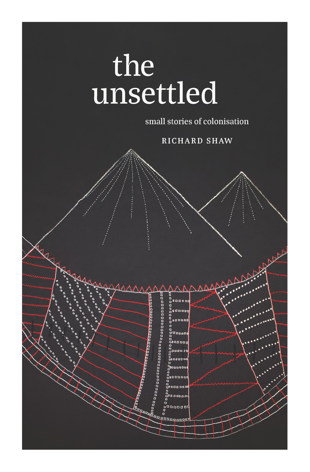‘As I read through my great-grandfather’s military service record and learned that he had been present not only for the invasion of Parihaka but also for the subsequent occupation, a sense of discomfort settled inside which has never left me. This stuff registers in the body. It might then shift to the brain or the heart or wherever – but, in the first instance, learning something that forces a past is felt in the stomach.
Sometimes, too, the excavation is messy, incomplete — for even if the detail is not known, we can sense that there are bits missing. Rachel Buchanan calls this “the presence of an absence”. The blank spaces are hinted at when people express the feeling that something in their backstory is not quite right, or keep picking away at those troubling questions about how things really were. We may not know the full extent of what has been forgotten or misplaced along the way, but we know something is waiting to be found.
And sometimes digging up the past can leave us feeling unsteady on our feet, the trick of standing upright here proving more difficult than it sounds. The endless moving on, putting the past behind us and fantasising about our blameless history – perhaps this is simply what happens when the land to which we lay claim is unquiet. Perhaps, too, these unacknowledged facets of our pasts are part of the reason so many of us are constantly upping sticks, always on the prowl for a bigger house or a better piece of real estate.
We talk of this in the language of progress and of getting on in the world, but might it not also be that our constant need for movement issues from a sense of existential impermanence; from the unease that comes from knowing, deep down in the unacknowledged parts of ourselves, that we stand on shaky foundations?
The work is slow, laborious, often frustrating. Neither does it really seem to end, taking on the raiment of a process of becoming rather than a state of being.’
Read the full extract here.


